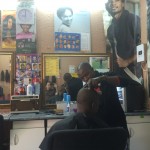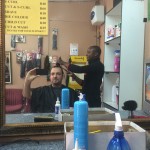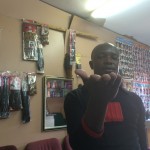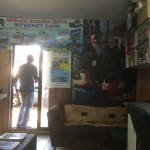Still recovering form my end of the year party. I must be old. But love that I’ve found my people. A glimpse for those that weren’t there . . .

Alex Burger | Author, Screenwriter, Playwright
Author, Screenwriter, Playwright
Still recovering form my end of the year party. I must be old. But love that I’ve found my people. A glimpse for those that weren’t there . . .
So I watched Umlilo Season 3, Ep 1. At first, I could only see the problems and the terrible disjuncture between what I saw in my head when I wrote it and what was on screen (even if it was better on screen.) But then I relaxed and enjoyed it . . .
In any case, in case you missed it, here are the top 5 best moments. (I love the shit these marketing people come up with.) Check it out.
Two TV shows I’ve written on – “Umlilo” and “Doubt” are both being shot as we speak and go to air soon.
Umlilo: Premiering the 21st March: Mondays, eTv 21:30 – 22:30
Doubt: Premiering the 4th of April: Mondays, Mzansi Magic 20:00 – 20:30
I’ve been on a set a few times – still amazes me that all these ideas we just dreamt up in the writers’ room, hundreds of people now run around making happen. So one day we said “oh, let’s put Sanele in jail and have him try to escape” or “why don’t we create a fourth wife for Mnqobi?” Now suddenly hundreds of people – actors, set designers, producers, directors, all mobilize to make this happen – each adding their own flair.
My students from the Market Lab visited the Doubt set last week, and they got a great education. Fun, fun.
Winter has begun to recede – days getting longer, and I have many “news” . . . New writing class I’m teaching at Wits University, new television show I’m writing on, and a new home . . . the first I’ve ever owned. A glass penthouse from which I peer down into the city.
A trip to one of my favorite places – Durban. The city smack against the ocean, the waves, the mix of Indian, Zulu, white. These fish have not had a good night.
My Saturdays: every third week I get haircut in Yeoville and shop for Nigerian food. Good to be back home in Jozi.






My sister Natasha and I met up with two friends at the Venice Biennale. Four days of delicious food, wandering through Venice, and some amazing art.
We saw an enormous wire head in a church (Jaume Plensa), an army of muslin and resin bodies (Magdalena Abakanowicz), found objects in Italy sculpted together by a Native American who lives in Paris (Jimmy Durham).
We saw copies of Greek and Roman statues tagged and displayed on boxes as if they were in storage (Prada Gallery), a man who recreates workshops were he manufactures futurist glow in the dark aardvarks (Mark Dion), and charcoal burnt city (Mathew Day Jackson.)
We saw an exhibit from an archeologist in the future who found old objects (from a time still in the future from our present) including a space suit (Arseny Zhilyaev), a Vietnams artist who made maps based on data from the Syrian war data (Tiffany Chung), and a Japanese artist who hung tens of thousands of keys on red strings (Chiharu Shiota).
And these were just a few of the objects and art we stumbled upon. Our friends at dinner said that the purpose of great art is that you then see the world differently. My world looks very different now . . . reveling in the unusual and unexpected.
A couple weeks backs I traveled down to East London, in the Eastern Cape in South Africa. East London reminds me so much of Montgomery Alabama: the streets, old buildings, crowds wandering. Driving through East London I remembered how twenty years ago I arrived for the first time in Montgomery, all my possessions packed in my car, having never been there before. I got to Montgomery in the evening, looked out the window, walked out on the brick street, smelled the evening air, and said, yes, I think I’ll live here. ISetting foot in East London, I feel l could almost do the same. Here is East London
Sometimes I miss the intuitiveness with which I lived. I used to be guided by smells, by the texture of light in the evening, by the way a building crumbled. That’s how I ended up in Alabama, in Chad, even in a glass house in South Africa. This intuition is what I write from – I realize this more and more. I follow traces down narrow alleys, invite strangers for a drink wondering if they will become lovers, sit by women at bus stops, knowing they may change my life.
So I wrote and actors performed a 10 minute play of mine last night. It was part of an event in Johannesburg where 6 new plays were created and staged in 24 hours. I thought my play was (or could be) a deeply cutting satire about the lethalness of white dominated theatre in South Africa. Instead, what played before an audience of 100, was a light comedy about an eccentric theatre boss and his students.
I did my best, really. I tried to set up a bizarre universe of white theatre makers where their art vacillated between calisthenics and horribly overwrought recreations of melodramatic crap. I created an ambitious young black man who wanders into this word, desperately wants to be a part, only to eventually make his way in and then get sucked down the vortex of their twisted and imminently self-referential world. Heck, I even littered the stage with dead bodies (in case you missed the point) that the apprentices have to drag out each day once the rehearsals will over.
But in the end, the play I watched was a light comedy. Not bad, funny in its own way, but not what I had meant. It was partly the director (who told me the race stuff didn’t work and he took it out), partly the actors, partly the context, and of course my writing (after all they did perform some version of what I wrote).
The whole experiences leaves me intrigued, disconcerted about what theatre is and becomes when shared and lived (away from a perfect dream rattling in my head.) I find it much cleaner just to imagine things, but when they get done (performed before a live audience) it gets messy. Of course, that’s the point, right? But then suddenly reality has to be shared, negotiated, and then I’m a little at a loss. Can I critique the same space that I’m working in? Can I communicate what feels like an impossibly real truth to people that don’t see or believe it? How do I reach / connect / challenge in a way that will be heard? I don’t know that I know . . .
It’s Easter and I’m having lunch with a sangoma. Sangomas are traditional healers in South Africa. He tells me the story of his calling: visions and dreams starting very young. For along time he wasn’t sure how to handle them. He’d have visitations by the ancestors when he was a boy: headaches and fits. Until he began to accept them, slowly, slowly and then things calmed down. Finally he apprenticed under a sangoma, until he officially became one.
I’m not a big one for the Easter holiday. It’s a four day holiday here in South Africa and I’ve been working right through it, avoiding church invitations, catching up on work meetings with other non-adherents. But strangely, this year, something turned in me. You see, I’ve changed recently, started letting go of things. I’m reminded of the Elizabeth Bishop poem, “One Art,” a poem she wrote at the loss of her long time partner.
The art of losing isn’t hard to master
Some things seem so filled with the intent to be lost
That their loss is no disaster
I’ve always been afraid of losing: I’ve always been afraid of endings and beginnings. I have often preferred the uncertain middle, hedging my bets, hanging onto places and people. But something has changed in me recently, I’ve begun to let go: cut people out of my life, leave memories to be just that (rather than another alternative reality floating in my head), saying good bye to parts of me, old habits. Elizabeth Bishop again:
Then practice losing farther, losing faster:
places, and names, and where it was you meant
to travel. None of these will bring disaster.
And the odd thing is, the thing I never knew is that in letting go I open up to new realities: new people, new loves, new dimensions of my life. I’m reminded again that the past doesn’t exist (I have a hard time with this one) neither does the future. What if everything I did was only the optional baggage of a life already lived that could be set down at any time?
—Even losing you (the joking voice, a gesture
I love) I shan’t have lied. It’s evident
the art of losing’s not too hard to master
though it may look like (Write it!) like disaster.
So the strangest thing of all is that I am moved by this Easter holiday. It makes sense to me for the first time: this mass adoration of a figure and a set of stories (Jesus). Today it makes sense as a way of connecting to process of letting go (dying) and renewal (which can happen only after death). I’ve always been afraid of endings and beginnings, and in some ways, maybe I’ve been afraid of myself (as my sangoma friend was also.)
Here’s to death and renewal, endings and beginnings, emergence.
Happy Easter